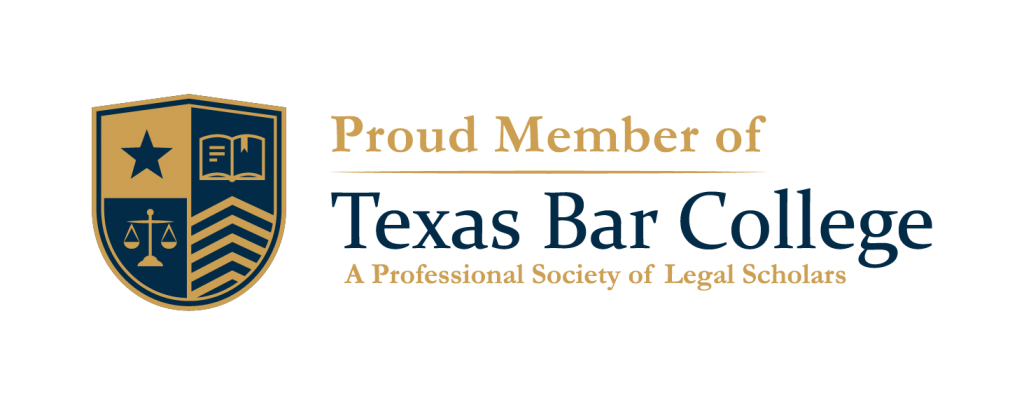Our firm has achieved some of the highest judgments and settlements under the Federal Tort Claims Act across multiple states. With a track record of setting legal benchmarks nationwide, we are committed to delivering exceptional outcomes for our clients.

Medical Malpractice Attorneys
Legal Representation for Victims of Healthcare Negligence
Medical malpractice occurs when a healthcare provider deviates from the established standard of care, ultimately causing harm or injury to a patient. Malpractice could involve surgical errors, misdiagnoses, medication mistakes, or failure to recognize complications promptly. While medicine is complex, and outcomes aren’t always predictable, professionals are expected to provide a certain level of care. When that care falls short, patients can suffer devastating consequences, which often lead to long-term physical, emotional, and financial burdens.
Navigating a medical malpractice case requires a team of skilled professionals. Proving negligence and building a strong case involves careful attention to medical records, expert testimony, and an in-depth understanding of the law. These complex cases demand legal insights and thoroughness.


Across the United States
Achieving Justice Nationwide with Unparalleled Verdicts and Settlements
National Trial Law has a storied history of securing landmark verdicts and settlements across the United States. Notable achievements include a $230 million judgment for survivors of the Sutherland Springs Church mass shooting, a $44.7 million trial judgment for a birth injury at an Air Force hospital, and a $21.5 million verdict for a veteran who suffered catastrophic brain damage due to malpractice at the Manchester VA Hospital—the largest personal injury award in New Hampshire history. These results underscore the firm's dedication to holding institutions accountable and delivering justice for their clients.
-
Record-Setting $230,000,000
Trial Win Sutherland Springs Mass Shooting
Highest Verdict and Settlement in FTCA History -
Record-Setting $44,717,681
Trial Win Air Force Birth Injury -
Record-Setting $21,592,643
Trial Win VA Medical Malpractice -
Record-Setting $10,500,000
Settlement VA Medical Malpractice
Proving Medical Malpractice
Demonstrating medical malpractice involves a detailed review of the facts and evidence in a case. Victims seeking compensation face a challenging process, as the responsibility to prove the claim rests with the plaintiff—the individual filing the lawsuit.
To succeed, the plaintiff must demonstrate four key elements:
- Duty of care: Every healthcare provider carries an inherent responsibility to deliver care that meets a standard of competence, ensuring the well-being and safety of their patients. They must follow accepted medical practices, act in the patient’s best interests, and provide treatment based on professional standards. Proving this duty is crucial as it establishes the healthcare professional’s responsibility to the patient.
- Breach of standard of care: The next step is showing that the healthcare provider failed to meet the accepted standards of care. This failure could involve errors in diagnosis, treatment, or failure to follow protocols. Medical records are critical, as they document the care provided and can highlight deviations from what is considered appropriate or safe treatment.
- Causation: After demonstrating a breach in the standard of care, the plaintiff must then prove a direct causal link between the provider’s negligent actions—or lack thereof—and the harm suffered by the patient, establishing that the injury was a foreseeable consequence of the provider’s failure to meet their duty. This aspect is often the most challenging of a medical malpractice case. Expert testimony is invaluable, as medical professionals can offer insights into how the negligence directly led to the patient's injury or worsening condition.
- Damages: The plaintiff must demonstrate that the malpractice resulted in damages. Damages can include physical harm, emotional suffering, extra medical expenses, lost income, and a reduced quality of life.
What Is Medical Negligence?
Medical negligence occurs when a healthcare provider fails to meet the established standard of care, leading to preventable harm or injury to a patient. This failure may result from misdiagnosis, delayed or improper treatment, surgical errors, or inadequate patient monitoring. Unlike intentional wrongdoing, negligence stems from oversight or a lack of reasonable diligence. Yet, its consequences can be equally devastating for the patient.
If medical negligence is proven, the responsible party may face liability, often resulting in monetary compensation to the injured patient.
Common Types of Medical Malpractice
Medical malpractice can occur in many forms, often with devastating consequences for patients.
The following are common types of medical malpractice:
- Surgical errors: Mistakes made during surgery can lead to serious complications. Errors could include performing the wrong procedure, operating on the wrong site, or leaving surgical tools inside the body. Surgical errors can result in prolonged recovery, additional surgeries, or permanent injury.
- Misdiagnosis or delayed diagnosis: When a healthcare provider fails to diagnose a condition correctly or delays the diagnosis, the patient's condition may worsen. For example, a delay in diagnosing cancer or heart disease can reduce the chances of successful treatment, leading to severe health outcomes.
- Birth injuries: Medical malpractice during childbirth can result in injuries to the mother and the child. Examples include failure to properly monitor the baby’s heart rate, delayed response to birth complications, or errors during a C-section. These injuries can have lifelong effects on both parties.
- Anesthesia mistakes: Anesthesia errors can be particularly dangerous, as they involve preventing the patient from feeling pain during surgery. Mistakes might include administering too much or too little anesthesia or failing to monitor the patient’s vital signs, leading to complications such as brain damage, nerve damage, or even death.
- Medication errors: Misprescribing, administering the wrong medication, or failing to account for a patient’s allergies or other medications can have serious health consequences. These errors can cause adverse drug reactions, worsening of the patient’s condition, or new health problems.
- Wrongful amputation: In some cases, patients may have a limb or other body part wrongfully amputated due to misdiagnosis, surgical errors, or negligence during surgery. This irreversible mistake can drastically change a person's life and cause physical and emotional trauma.
- Unethical treatment: Healthcare professionals are bound by ethical guidelines that require them to act in the best interest of their patients. Ignoring these guidelines—such as performing unnecessary procedures or providing substandard care—can harm the patient and breach trust.
- Unnecessary medical exams or medication: Unnecessary medical exams or medications can constitute a serious breach of trust and may qualify as medical malpractice. Subjecting a patient to unwarranted procedures or prescribing medications without a valid medical justification exposes them to potential harm and undermines their right to informed and ethical care.
- Hospital negligence: Hospitals are responsible for maintaining a safe environment and providing proper care. Negligence can occur when hospitals fail to meet health and safety standards, whether through inadequate staffing, poor sanitation, or failure to monitor patients appropriately. Inadequacies can lead to infections, falls, or other preventable injuries.
What to Do if You Suspect Medical Malpractice
If you believe that you or someone close to you has experienced medical malpractice, act quickly to safeguard your health and legal rights.
Key steps to follow include:
- Seek medical attention: Ensure you receive medical care for injuries or complications that may arise due to suspected malpractice. Your health and well-being should always be the priority. If you haven’t already, consult another healthcare provider for a second opinion on your condition and treatment options.
- Document everything: Gather as much evidence as possible to support your claim. Evidence includes detailed records of your symptoms, treatments, appointments, and conversations with healthcare professionals. Make copies of your medical records, prescriptions, and test results. If possible, document any incidents or errors you believe may have been caused by negligence. This information will be invaluable if you pursue legal action.
- Consult with an attorney: Reaching out to a medical malpractice attorney is essential for building a strong case. An experienced lawyer can clarify your rights, guide you through the legal process, and help assess whether you have a valid claim. They will also assist in gathering critical evidence, consulting with medical experts, and evaluating the potential for compensation. Remember that legal time limits, known as statutes of limitations, apply in medical malpractice cases, so acting quickly is essential.
The sooner you consult with a lawyer, the stronger your case can become. An experienced attorney will have the insights and resources to handle the complexities of a medical malpractice claim and fight for your best interests.
What Sets Us Apart
-
PEER APPROVED
More attorneys named Super Lawyers by Thomson Reuters in the “Personal Injury Medical Malpractice: Plaintiff” category in 2014, 2015, 2016, 2017, 2018, 2019, 2020, 2021, 2022, 2023, 2024, and 2025, than any other law firm in Texas (Bill Whitehurst, Chip Brees, Michelle Cheng, Jamal Alsaffar, Laurie Higginbotham and Tom Jacob)
-
RECORD-SETTING RESULTS NATIONWIDE
-
TEXAS ROOTS
Founded in Austin with more than 50 years of trial experience.
-
NATIONAL REACH
National results in complex personal injury litigation.
-
DEEP BENCH
Many experienced lawyers ready to serve you.
-
SE HABLA ESPAÑOL
Our team has multiple Spanish speaking staff members.





.2504041633274.png)




